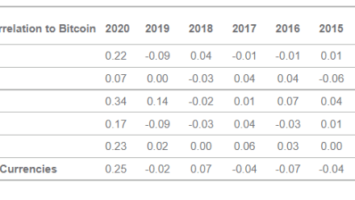
The Central Bank of Chile revealed it is studying how to issue a national digital currency, the digital peso. The bank issued a report titled “Issuance of a Central Bank Digital Currency in Chile,” where it explores the possibility of the creation of a central bank digital currency (CBDC) in the future, the mechanism it might use, and how it will consult all sectors of the economy on this issue.
Central Bank of Chile Considers CBDC Issuance
More banks in Latam are considering the issuance of their own central bank digital currencies (CBDCs) to take advantage of the different opportunities they might present. The Central Bank of Chile has just issued a new report studying the opportunities and drawbacks that the issuance of a digital peso might bring. The report, titled “Issuance of a Central Bank Digital Currency in Chile,” also studies the different forms that such a currency might take.
The document, authored by the payments group of the bank, was “framed in a context of increasing digitization of payments, which has been driven by rapid technological progress and the incorporation of new instruments and players in the payment market.” In this sense, the report concluded that:
The issuance of a CBDC would enable the benefits associated with digital transformation to be enhanced, while mitigating some of its risks. In particular, a CBDC could contribute to the development of a more competitive, innovative, integrated, inclusive and resilient payment system.
The report also calls for further analysis of the cost-benefit balance of issuing such a currency.
More Studies Needed
While many central banks in the world are studying and investigating the issuance of digital currencies, not many have moved to the execution phase. The document calls for more analysis and studies in this regard, as there are virtually no standards or best practice guidelines about how to proceed with the construction of such a project.
Digitization of the currency could also cause unforeseen negative impacts on the national economy, so any implementation in the future would have to be “carefully analyzed.” However, the central bank considers that this is the time to face this task and start working on its technical capabilities, and advance in the development of projects directed to test different implementations of the currency.
The bank also stated it will keep consulting and maintaining an open dialogue with all the institutions in the economic area. Brazil and Mexico are other countries in Latam also working to establish their own CBDC.
What do you think about the report issued by the Central Bank of Chile? Tell us in the comments section below.
Image Credits: Shutterstock, Pixabay, Wiki Commons
Disclaimer: This article is for informational purposes only. It is not a direct offer or solicitation of an offer to buy or sell, or a recommendation or endorsement of any products, services, or companies. Bitcoin.com does not provide investment, tax, legal, or accounting advice. Neither the company nor the author is responsible, directly or indirectly, for any damage or loss caused or alleged to be caused by or in connection with the use of or reliance on any content, goods or services mentioned in this article.






















Comments (No)